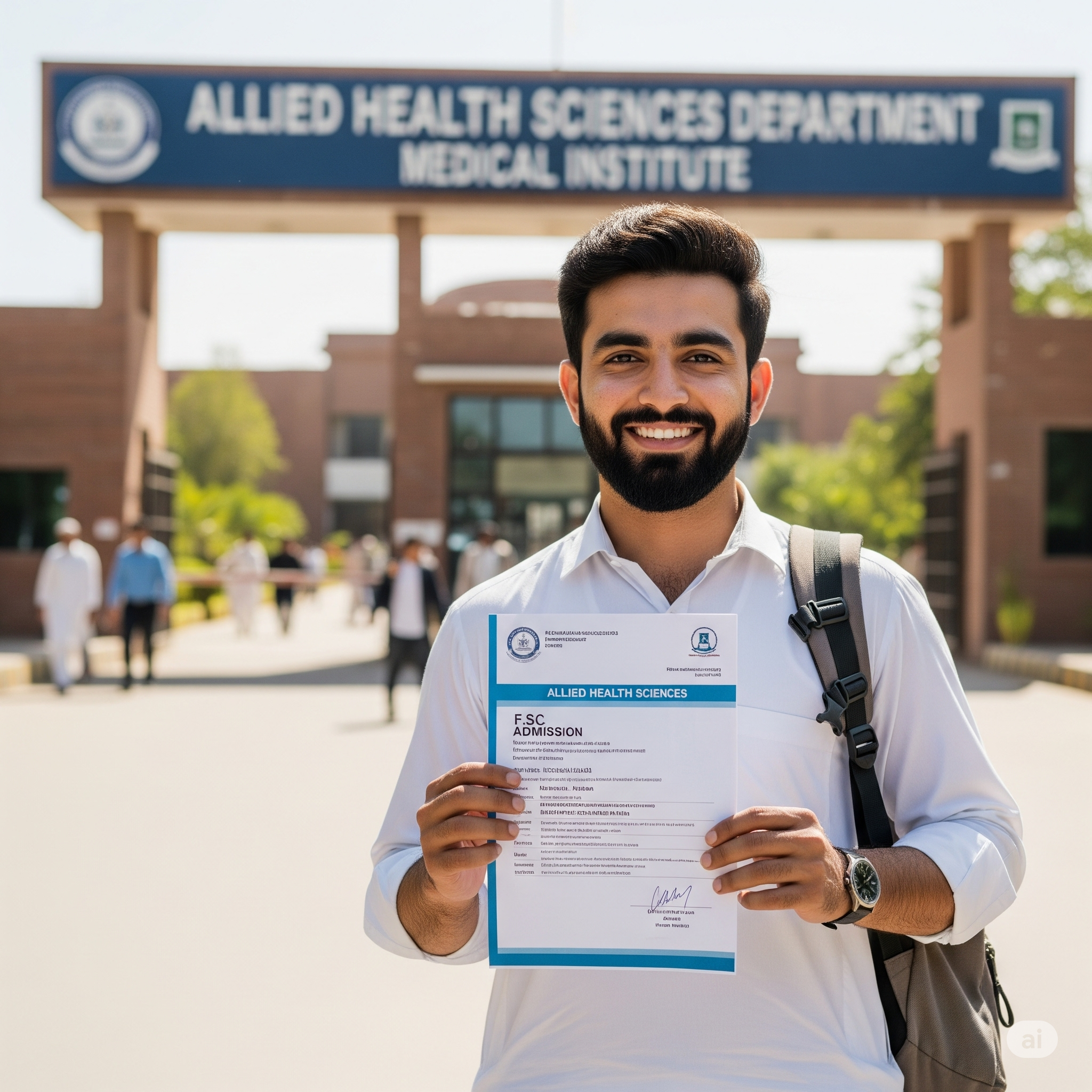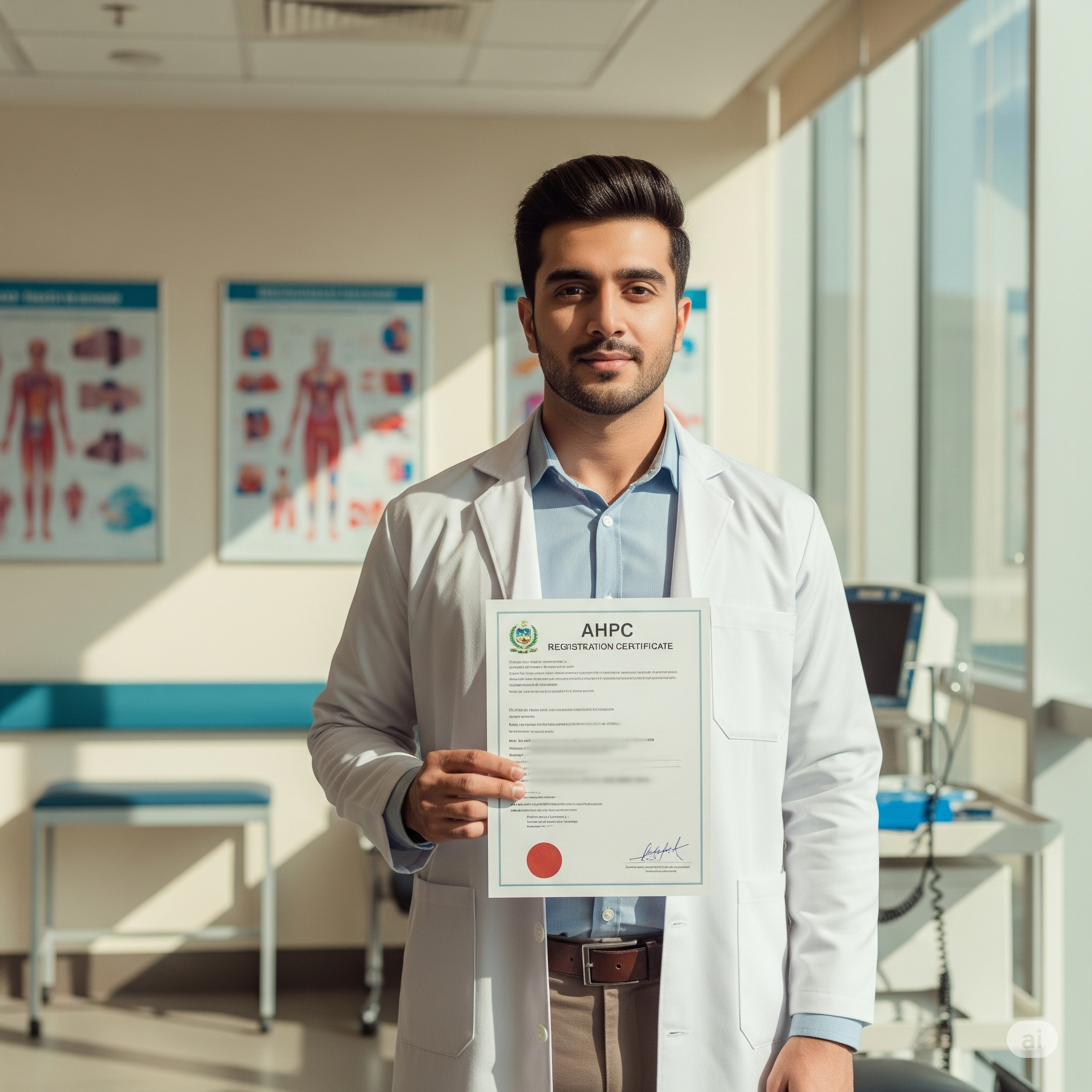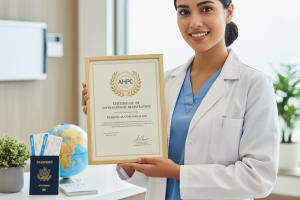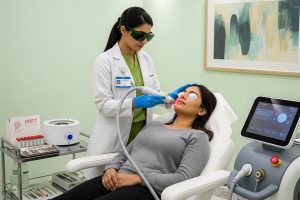
Allied Health Professionals in Pakistan: Roles, Differences from Doctors & Nurses, and Global Career Opportunities (2025)
Introduction: Allied Health Professionals in Pakistan — The Future of Healthcare
Allied Health Professionals in Pakistan are rapidly transforming the country’s healthcare system. In fact, they have officially emerged as the third vital pillar—standing proudly alongside doctors and nurses. Their formal recognition grew significantly after the enactment of the Allied Health Professionals Council Act, 2022, which now regulates their licensing, roles, and responsibilities.
Despite this legal recognition, many capable F.Sc students continue to overlook this promising career path. Interestingly, the law now licenses AHPs, allows them to practice independently, and opens up high global demand for their skills. Therefore, to bridge this awareness gap, this blog explores who Allied Health Professionals are, how their roles differ from doctors and nurses, and why 2025 represents a breakthrough year to join this expanding profession.

Who Are Allied Health Professionals in Pakistan?
According to the AHPC Act 2022,
An Allied Health Professional refers to someone who provides diagnostic, therapeutic, preventive, curative, or rehabilitative healthcare services in a prescribed manner. Moreover, this person must complete a prescribed course of training in a recognized institution and register with the authorized body for this purpose.
Consequently, this legal definition has transformed Allied Health Professionals in Pakistan into a formally acknowledged healthcare workforce. As a result, fields like occupational therapy, radiology, and physiotherapy now stand as essential pillars within the healthcare system.
Why Pakistani Students Overlook Careers as Allied Health Professionals
Although Allied Health has legal recognition, students still know very little about this path. For instance, most students prioritize MBBS, followed by BDS and Nursing. Meanwhile, Allied Health Professionals in Pakistan barely receive attention—not because students lack the capability, but because they receive weak career counseling. As a result, many talented individuals miss the opportunity to build strong careers in Pakistan and abroad.
Another issue is the misconception that Allied Health programs require MDCAT. However, many programs allow direct enrollment after F.Sc Pre-Medical. Furthermore, students who complete a 4-year Allied Health degree can register with AHPC and access opportunities in postgraduate education, research, private practice, and more.
Role of Allied Health Professionals in Pakistan’s Healthcare System
Allied Health Professionals in Pakistan contribute significantly across the healthcare spectrum. Not only do they provide direct patient care, but they also support medical teams, manage data, and enhance public health systems. In the diagnostic realm, they deliver timely and accurate lab and imaging results. Similarly, in therapy and rehabilitation, they help patients recover and regain independence.
Diagnostic support professionals include lab technologists, radiologic technologists, and sonographers. Additionally, professionals in therapeutic and rehabilitative services include physiotherapists, respiratory therapists, speech therapists, and occupational therapists. In the technical and surgical fields, anesthesia technologists, surgical technicians, and dialysis technicians offer critical support. Moreover, health information officers, hospital management professionals, and public health technicians contribute to administrative and public health roles. Therefore, Allied Health Professionals in Pakistan fulfill essential responsibilities and form an irreplaceable part of the country’s healthcare system.
How Allied Health Professionals Differ from Doctors and Nurses
Doctors typically complete MBBS and FCPS qualifications and focus on diagnosis and prescription. Nurses usually pursue BSc Nursing or RN programs and specialize in patient care and coordination. In contrast, Allied Health Professionals in Pakistan follow pathways such as F.Sc plus diplomas, BS (Hons), M.Phil, or PhD. Their work centers on diagnostics, therapy, rehabilitation, and surgical support.
Doctors fall under PMDC regulation, while nurses answer to PNC. On the other hand, AHPC, HEC, and technical boards oversee Allied Health Professionals in Pakistan. Moreover, the government supports doctors and nurses through house jobs and internships with stipends. Unfortunately, AHPs currently do not receive structured stipends or internship benefits.
Government Job Structure for Allied Health Professionals
Government service includes two career tracks for Allied Health Professionals in Pakistan. The technician cadre starts at BPS-09 and offers promotions up to BPS-16. This track suits candidates who hold a Matric with Diploma or Associate Degree. Conversely, the officer cadre—known as Doctor of Allied Health—begins at BPS-17 and allows promotions up to BPS-20. This path requires a BS (Hons), M.Phil, or PhD.
Punjab, in particular, has led the way in implementing these career structures. Over time, thousands of BS (Hons) graduates have joined public health institutions and climbed to senior roles under the 2012 service rules approved by AHPC.
Why Choose Allied Health as a Career in 2025
Several compelling reasons make 2025 the ideal year to join this profession. Firstly, students can begin with a BS (Hons) degree and register with AHPC. From there, they may continue toward M.Phil, PhD, or specialize in clinical or academic tracks.
Secondly, countries like the UAE, UK, Canada, and Australia are actively hiring Allied Health Professionals in Pakistan. Additionally, professionals who receive AHPC licenses can open diagnostic labs, rehab centers, and clinics. Furthermore, postgraduate qualifications pave the way for academic, research, or policy careers. Thus, the path leads beyond clinical practice into teaching and leadership roles.
Punjab’s Reforms: A National Model
Punjab has become a national example of Allied Health transformation. Specifically, it placed hundreds of professionals in BPS-17 to BPS-20 roles across government facilities. In addition, AHPC registration provides legal recognition and enhances their international credibility. Private institutions now run CPD courses, specialized diplomas, and certifications that align with global standards.
Much of this progress reflects the efforts of Syed Asad Ul Abbas Naqvi, who helped institutionalize Allied Health as a recognized and respected professional sector in Pakistan.
International Job Opportunities for AHPs from Pakistan
Global job markets now offer more access to Allied Health Professionals in Pakistan than ever before. Consequently, many professionals find employment in health systems abroad.
For example, the UAE and Saudi Arabia frequently recruit anesthesia technologists, radiographers, and OR technicians. The UK actively seeks physiotherapists, lab technologists, and occupational therapy professionals. Canadian employers show interest in health records managers, rehab technicians, and sonographers. Meanwhile, Australia presents opportunities for clinical research assistants and radiologic technologists.
To qualify, professionals must maintain valid AHPC registration, meet IELTS or TOEFL score requirements, and complete credential evaluations or register with foreign councils such as HCPC, AHPRA, or MOH.
FAQs
- How do I become an Allied Health Professional in Pakistan? First, complete F.Sc Pre-Medical. Then, apply to an HEC-recognized BS Allied Health program. After graduation, register with AHPC to launch your professional career as an Allied Health Professional in Pakistan.
- Is Allied Health a strong alternative to MBBS or BDS? Absolutely. With legal recognition, high demand, and international mobility, this field now stands as a viable and respected career option for Allied Health Professionals in Pakistan.
- Can I pursue higher studies like M.Phil or PhD? Yes. Many institutions in Pakistan offer postgraduate programs in Allied Health disciplines.
- Is this profession suitable for females? Definitely. Fields such as sonography, lab sciences, physiotherapy, and public health offer excellent opportunities for female Allied Health Professionals in Pakistan.
- Do AHPs receive stipends or internships? Currently, most programs lack structured stipends. However, AHPC and provincial governments are working on reforms to offer fair internship systems and practical training.
Conclusion: Be the Healthcare Professional Pakistan Needs
To conclude, Allied Health no longer serves as a backup option—it has become a leading profession in healthcare. Whether you’re an F.Sc graduate, a diploma holder, or a mid-career professional, 2025 provides the right opportunity to enter this regulated and rewarding sector. Apply to an HEC-approved Allied Health program. Then, register with the Allied Health Professionals Council (AHPC). After completing your education, secure your license to practice, teach, or explore international opportunities. Ultimately, you will build a respected, future-ready healthcare career as an Allied Health Professional in Pakistan.
Apply now to BS Allied Health Programs—Seats are limited for 2025!





1 Comment